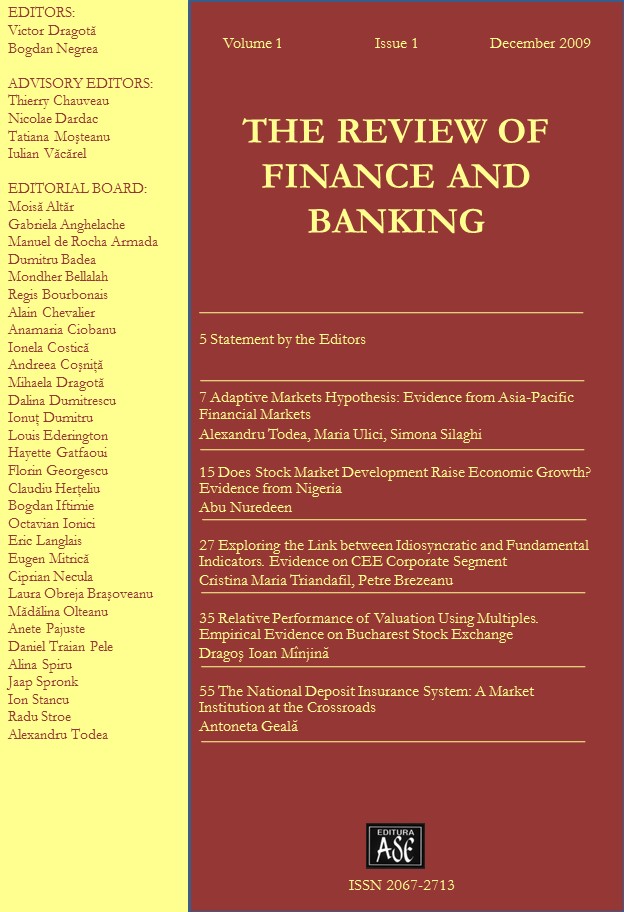Adaptive Markets Hypothesis: Evidence from Asia-Pacific Financial Markets
Adaptive Markets Hypothesis: Evidence from Asia-Pacific Financial Markets
Author(s): Alexandru Todea, Maria Ulici, Simona SilaghiSubject(s): Economy, Financial Markets
Published by: EDITURA ASE
Keywords: episodic dependencies; bicorrelation test; technical analysis; adaptive market hypothesis
Summary/Abstract: In this paper we investigate the profitability of the moving average strategy on six Asian capital markets considering the episodic character of linear and/or nonlinear dependencies, the period under study being 1997-2008. For each market, the most profitable strategy from 15000 alternatives is selected. The main conclusion is that profitability of moving average strategies is not constant in time; it is episodic showing when sub-periods of linear and non-linear correlation appear. Thus, one can thus say that the degree of market efficiency varies through time in a cyclical fashion over time and these statistical features are in line with those postulated by Adaptive Markets Hypothesis (AMH) of Lo (2004, 2005).
Journal: The Review of Finance and Banking
- Issue Year: 1/2009
- Issue No: 1
- Page Range: 7-13
- Page Count: 7
- Language: English

